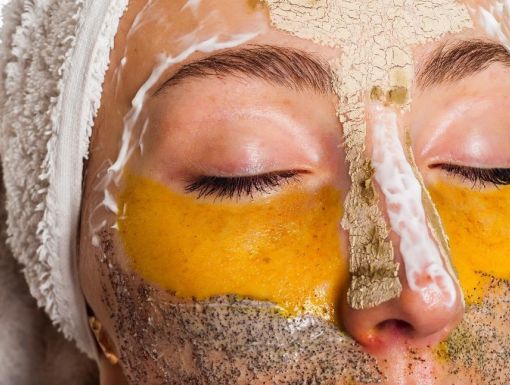
What Are the 7 Principles of Handwashing?
Proper hand hygiene is one of the best ways to protect ourselves and others from illness. Why is hand hygiene so important? You might not know, but your kitchen chopping board might harbor 200 percent more bacteria than a toilet seat! Think about the surfaces you touch daily: the office coffee pot, your steering wheel, the grocery store cart or even your smartphone. Now consider how often your hands end up near your face, scratching an itch, adjusting glasses or holding your phone close to your mouth. These everyday interactions highlight why maintaining good hand hygiene is critical for germ prevention and overall health. Every touch is an opportunity for germs to spread. By incorporating regular handwashing and sanitizing into your routine, you can significantly reduce the risk of transmitting illnesses like the cold and flu by interrupting the cycle.
However, frequent handwashing, while critical for germ prevention, often leads to dry and irritated skin, so striking a balance between maintaining hygiene and keeping your hands healthy is important.
When should I wash my hands?
You should wash your hands as often as possible, but prioritize handwashing during the following times:
- Before: Preparing food, eating, treating wounds, caring for someone who is sick or taking medication.
- After: Using the restroom, handling garbage, coughing, sneezing or touching pets.
- Anytime: After returning from public spaces or touching frequently used items like door handles or shopping carts.
Are hand sanitizers as effective as handwashing?
Hand sanitizers with at least 60 percent alcohol are a good alternative when soap and water aren’t available. However, they don’t eliminate all types of germs, especially when hands are visibly dirty or greasy. Handwashing remains the best option.
What’s the proper way to wash my hands?
Handwashing goes beyond simply using soap and water. Following the proper technique ensures its effectiveness. The Centers for Disease Control and Prevention (CDC) recommends the following steps for proper handwashing:
- Wet your hands with clean running water, warm or cold, and apply soap.
- Lather your hands by rubbing them together with the soap, applying it to the back, the front, between fingers and under nails. When you lather your hands, this creates friction which helps remove dirt, grease and microbes from your skin. Your nails are a hot spot for microbes and germ, so be sure to cover with soap and scrub well.
- Scrub for at least 20 seconds. Singing the “Happy Birthday” song is a handy timer!
- Rinse well under running water.
Dry your hands thoroughly with a clean towel or air dry them, as damp hands transfer germs more easily.
Can frequent handwashing harm my skin?
While hand hygiene is non-negotiable for overall health, frequent washing can strip the skin of its natural oils, leading to dryness, cracks and even irritation. Your skin is your body's first line of defense, creating a barrier that prevents harmful microbes from entering. Skin that is dry or cracked weakens this barrier, making it more susceptible to infection.
Pairing hand hygiene with skincare enables you to maintain clean and healthy hands. Try integrating these simple yet effective skincare tips into your routine:
How can I protect my skin while practicing good hand hygiene?
- Use Lukewarm Water. Hot water dries out your skin by stripping away its natural oils. Instead, opt for lukewarm water, which is gentler and equally effective for handwashing.
- Moisturize after washing. Apply a fragrance-free, dye-free moisturizer with ingredients like petrolatum or mineral oil to lock in hydration and restore your skin’s barrier.
- Keep Moisturizer Accessible. Place a tube of hand cream near your soap dispenser, in your bag or on your desk to make moisturizing part of your routine.
- Address Persistent Skin Issues. If dryness, cracking or irritation persists despite regular moisturizing, consult a dermatologist for specialized advice.
Protecting your skin while maintaining proper hygiene helps your hands stay resilient and healthy.
Should I moisturize every time I wash my hands?
Yes, moisturizing after every wash helps lock in moisture and restore your skin’s protective barrier. Consistent hydration keeps your hands soft and prevents dryness.
How can I help promote good hand hygiene in public spaces?
Hand hygiene habits should extend into workplaces and public spaces. You play a role in minimizing the spread of germs in shared environments. Here are some best practices for promoting a cleaner community:
- Disinfect high-touch surfaces regularly, such as desks, keyboards, doorknobs and shared equipment.
- Replace communal towels with disposable ones or individual alternatives.
- When visiting healthcare facilities, practice proper hand hygiene by using sanitizer upon entering and exiting.
You can even contribute in small but impactful ways, like gently reminding healthcare professionals to sanitize their hands before providing care. Together, these efforts create safer environments for all.
Your hands play an essential role in protecting your overall health. By pairing effective hand hygiene with thoughtful skincare, you defend yourself and others against harmful germs while maintaining the integrity of your skin. Small habits, such as consistently washing your hands and moisturizing regularly, can lead to big health improvements over time.
What should I do if I notice my skin cracking or staying dry despite moisturizing?
For personalized skincare advice or assistance with persistent hand issues, connect with an Ochsner dermatologist today. Log in to MyOchsner to set up a video visit with your provider.



